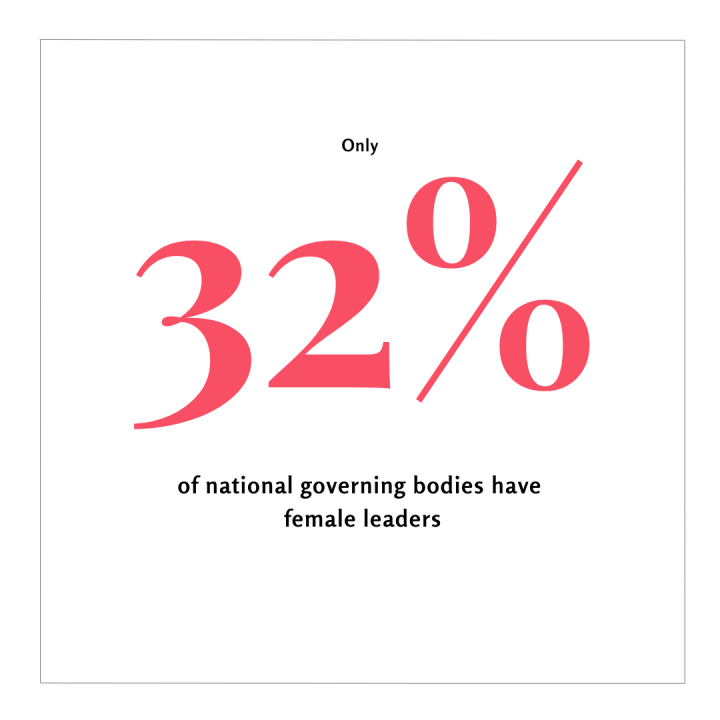Following a statement made by the International Olympic Committee (IOC), the delayed Tokyo 2020 Olympics was to be a “landmark in gender equality”, which was proven when almost 49% of nearly eleven thousand athletes were female. Marking this year’s games as the most ‘gender equal’ in history. Yet, while gender equality was seen on the field, a different story was told behind the scenes. What in fact was meant to be an eye-opener for gender equality, really became a cry out for athlete sexualisation.
What are the stats?
This year the IOC publicised that 47.8% of their commission consisted of female representatives, however a more hidden statistic is that only 33.3% of the Executive Board are female. That is just 3.3% above the recommended percentage for diversity, outlined by charity ‘Women in Sports’.
So, when female athletes started to speak out about sexualisation and chauvinist uniform regulations, during the Olympics and to this present day, it was clear an ongoing problem was coming to the surface. Both in leadership and athlete wellbeing.

According to the most recent Olympic Charter published by the IOC, they have the “sole and exclusive authority to prescribe and determine the clothing and uniforms to be worn, and the equipment to be used, by the members of their delegations on the occasion of Olympic Games”.
However, it’s really the International Federations who establish attire, roughly 10% of which have female leaders, and can often be driven by financial or commercial gains. Furthermore, only 32% of the National Governing Bodies have female leaders.
The impact
Danusia Francis OLY is an Olympic gymnast and coach who competed at Tokyo. Often in gymnastics, it’s common for female athletes to be sexualised because of their uniform, however, there is choice. She explained how gymnasts wear tight clothing to prevent injuries, but the amount of skin on show should be to the discretion of the athlete. “I personally don’t mind wearing a leotard, but it was great what the Germans did as they showed people there is a choice.”
To fight sexualisation at the Tokyo Olympics, the German Gymnastics team wore crystallised suits that did not just stop at the hips, but in fact stretched down to their ankles.
View this post on Instagram
Instagram @insiderbeauty
Danusia spoke of her experience when she found videos on YouTube of someone inappropriately filming her in competition, describing it as ‘feeling helpless’. “If I get a wedgie, I know it’s going to distract me but it’s also a worry that someone creepy could be watching, which is why having a choice of uniform is so important.”
Kate Seary is an international middle-distance runner who co-founded Kyniska Advocacy, a non-profit that celebrates, protects, and respects women in sport. She said she would be given either shorts or bikini bottoms to choose from and that would be the extent of it. She added: “I find athletes have this expectation to be sexy and to focus less on the performance. I’ve even felt self-conscious thinking if my stomach is on show, or my bum is sticking out so I would like to see more choice.”
She also thinks that it’s time we start viewing sport as someone’s workplace. “We’re able to objectify bodies because of this,” says Kate. “In reality we need to look at sport as workspaces and treat athletes as if they were sat behind a desk.”
I find athletes have this expectation to be sexy and to focus less on the performance
A BT Sport poll found that 67% of UK female athletes have felt judged over their appearance. Therefore, sparking outrage by policing uniforms and sexualisation in women’s sports may have the potential to discourage hopeful athletes. An issue that has been happening continuously over the years.
Back in 2018, Serena Williams was given a warning for not showing “respect for the game.” Her offence? Wearing a catsuit designed to reduce blood clots after pregnancy. In July the Norwegian Beach Handball team were fined £1,300 collectively for wearing shorts instead of bikini bottoms; a regulation now overturned. Paralympian, Olivia Breen, was told her briefs were “too short and inappropriate.” In October, 2,500 hyper sexualised images of Japanese athletes were reported.
Change for good
Natalie Pirks is a BBC Sports correspondent and believes uniform can have a damaging effect on sport inclusion. “Particularly for people with religious sensitivities, if you’re a girl and see a sport isn’t for you because of what you have to wear, that will put you off,” says Natalie.
She added: “This is why you have diversity in boards. Because diversity of thought gets us to the point where everyone is included.”
According to a study by ‘Women in Sport’ 61% of women believe that women face more challenges to become senior leaders. So, with less physical representation of female leaders in the sports system, the less voice they will have to help fight sexualisation and improve the lives of women.
“Having more women in positions of power, the mindset would change,” says professional volleyball player, Ci Michel. “We are being paid to play volleyball, not to be eye candy. I don’t think until it is the norm that women aren’t sexualised, that we will see change.”
We are being paid to play volleyball, not to be eye candy
Karen Issokson-Silver is the Vice President and head of research and education at Women’s Sports Foundation and believes that having gender equality in leadership is crucial for any organisation. “Diverse representation is everything,” says Karen. “In every space that humans operate in, you can’t run an organisation without ensuring you have diversity from voices to specific experiences. Why are sports bodies and federations allowed to participate when they have no women?”
View this post on Instagram
Instagram @womenssportsfoundation
Karen also recognises that a cultural shift needs to occur. Since society has been wired for centuries to sexualise women, she believes change will happen when we look at the wider issue. “Sport is a microcosm of society, so we need to look deeper into how that will reflect gender discrimination,” says Karen.
No matter in what industry, gender should never determine goals or ambitions. But in a system that has traditionally been dominated by men, will the future of sports ever be gender equal? Changing the mindset of something as turbulent as society may take longer than this lifetime to happen. Especially when it comes to female sexualisation. However, we can control the controllable and encourage those who have the power to spark change, and inspire diversity, to take action.
If you would like to keep up to date with more news on the topic, follow us @womenshealth_dmcs
To read more about this issue, click the links below:
Video feature
Audio feature
Added Value


 Nature improvements to Winton Recreation Ground are ongoing
Nature improvements to Winton Recreation Ground are ongoing